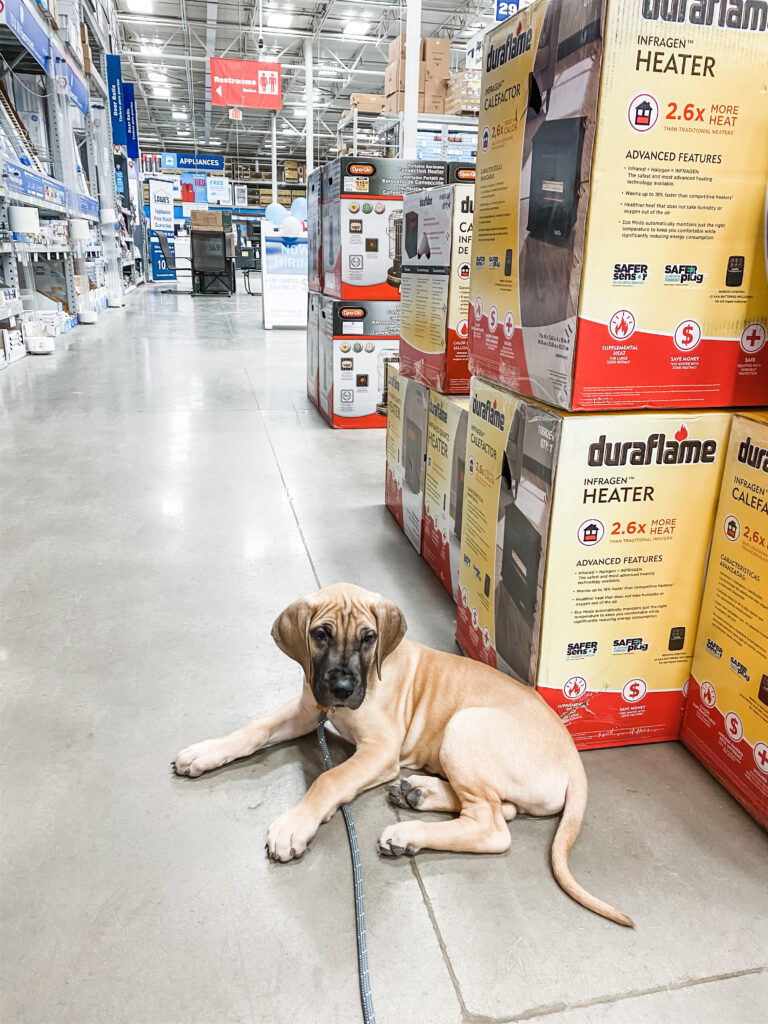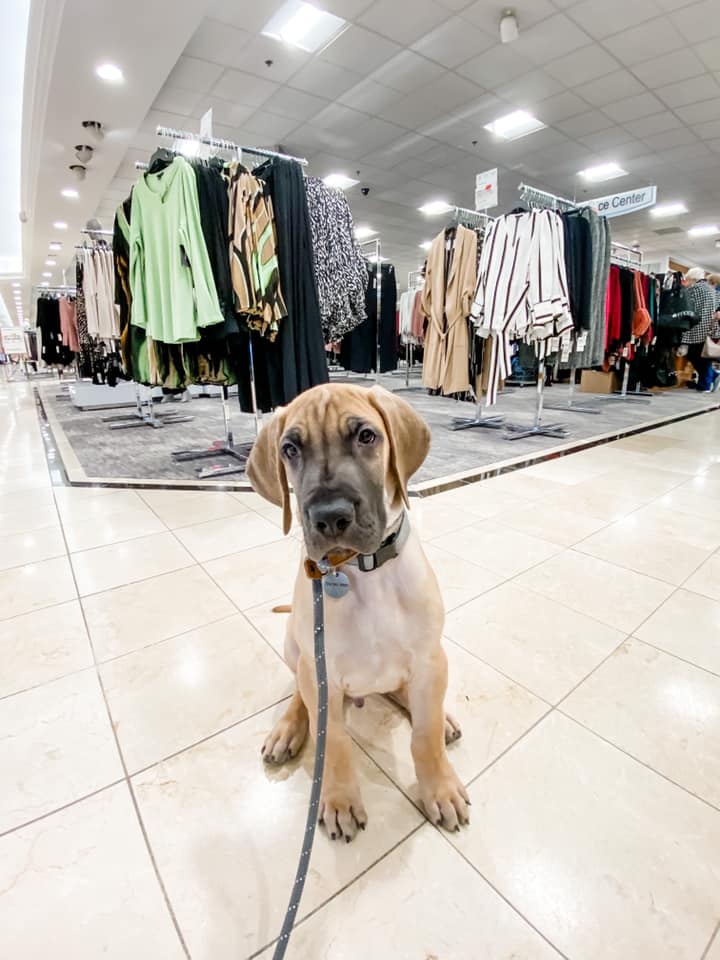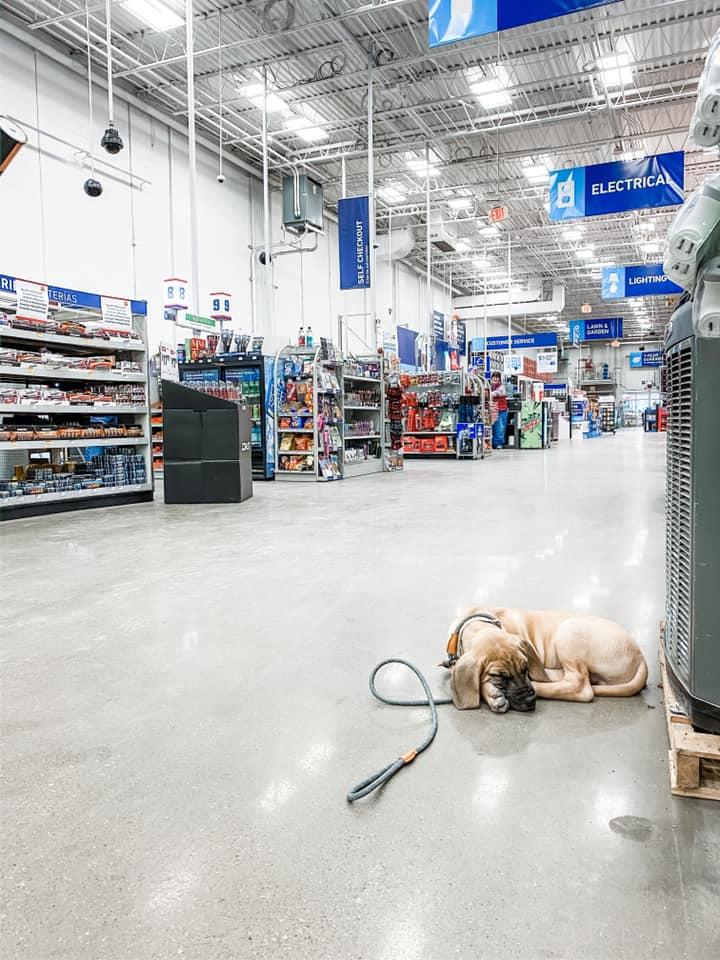Anyone who has brought home a new puppy has undoubtedly heard (often from a vet) that “you shouldn’t take them out in public until they’ve got all their vaccines!” I’m here to tell you that’s some antiquated advice that’s likely going to set you up for failure. Should you keep your puppy locked away at home until 12-16 weeks when they are fully vaccinated? Absolutely not. These early weeks are incredibly crucial for socialization, and if a puppy isn’t exposed to something before 12-16 weeks of age (or if they are exposed and have a bad experience), a fear could develop that would last their entire lives.
Unfortunately, it’s very common for a puppy who isn’t properly socialized to grow into an adult dog with fearful reactivity and aggression. The risk of contracting a disease that most dogs are vaccinated for is small, especially if you’re mindful of your surroundings and smart about where you take your puppy. The risk of raising a fearful dog, though, is huge if you don’t take your puppy anywhere during those formative weeks.
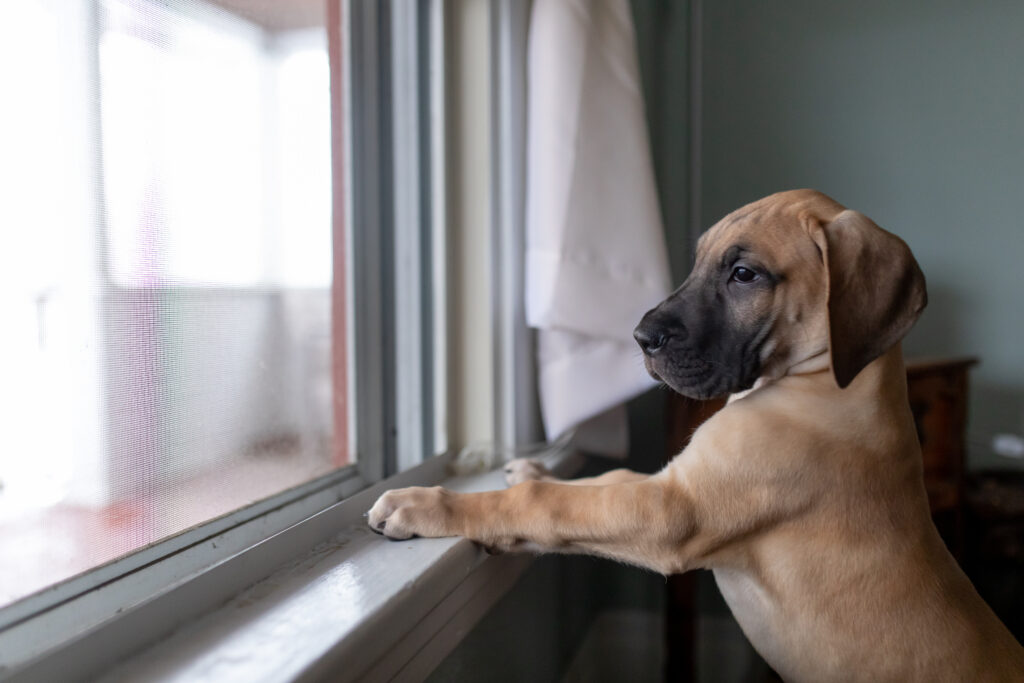
“But Charlene, surely you aren’t suggesting I let my puppy contract a deadly disease and take them everywhere with no limitations?!” No, of course not. I still recommend you exercise caution and use common sense when you’re deciding where and how to socialize your puppy. I strongly recommend a puppy class at a quality training facility, for starters. This is almost always a safe choice because vaccines will be required for any adult dogs (or older puppies) visiting the facility, so it’s very unlikely your pup could pick up a virus or disease there. I would also suggest asking questions before you choose a trainer for this – you want a facility that limits class size (as well as age) so that your pup doesn’t get overwhelmed or scared. Again, be mindful that bad experiences are REALLY bad during these formative weeks, and one run-in with an unfriendly dog could change your dog’s demeanor forever. Similarly, if you put your puppy in a position where s/he is surrounded by too many puppies (even if they’re friendly), lots of people, and all the new sights, sounds, and smells that come with visiting a new place, that kind of overwhelm could have the same impact. It’s important to allow your pup opportunities to explore the world with confidence, and being picky about the situations you put them in early-on is crucial!
I suggest trying to find a class that allows some time at the end for the puppies to play. While it’s important for your pup to learn that training is important and you will often require their focus while in the presence of other dogs, I think that those interactions with other puppies are so beneficial to their socialization and confidence.
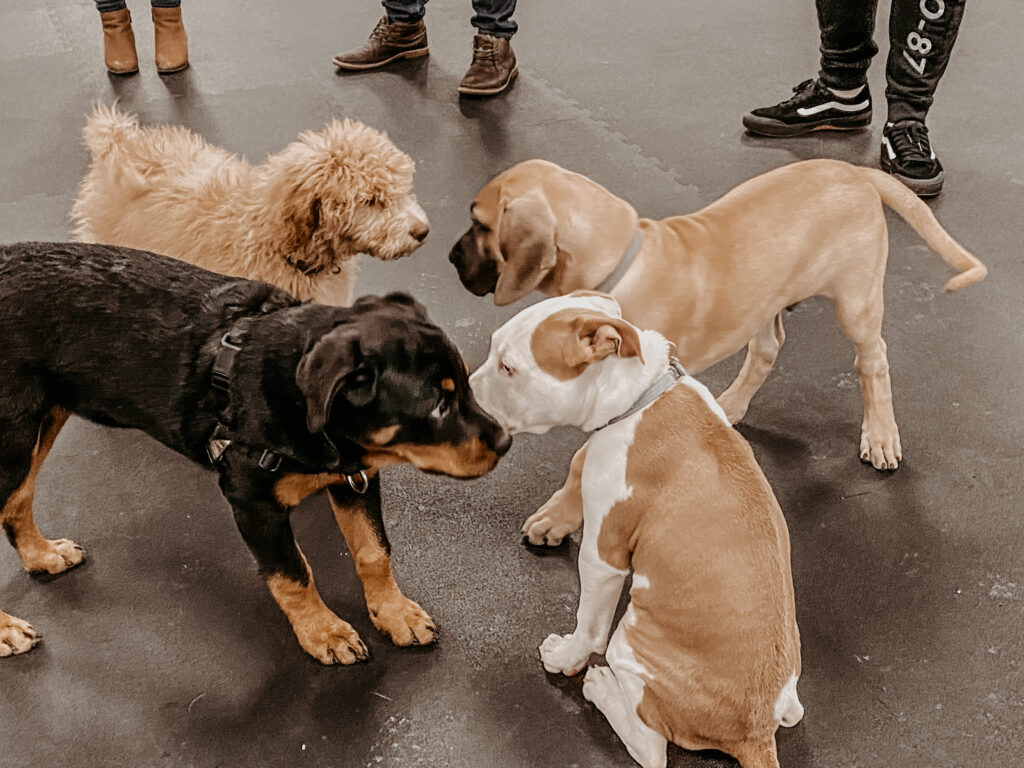
In addition to finding a great quality puppy class, look for other opportunities to expose your puppy to different places, people, and things. I would caution you to stay away from dog parks (that’s a whole other blog post, haha!) and big pet stores like Petco, Petsmart, etc. Even just statistically speaking, in places like these that a lot of dogs visit daily, you’re more likely to expose your puppy to illness. Unfortunately, these are also the kinds of places that irresponsible pet owners bring their dogs, so chances are higher yet that your pup will contract something devastating or even deadly, not to mention the increased threat of a bad experience with another dog who isn’t friendly.
The kinds of places I do recommend you check out would be pet-friendly stores that people don’t often bring pets to. Places like Nordstrom, Macy’s, Ross Dress for Less, and even Lowe’s and Home Depot can be a great opportunity to get your puppy out into the world with a much smaller possibility that they will have only good interactions. They’ll still be exposed to loud sounds, shopping carts & wheel chairs, and of course friendly strangers in all forms.
It’s also a great idea to arrange experiences that your pup might not otherwise get to experience organically. For example, I don’t have kids, but of course it was very important to me that Grey be friendly and confident around children, so I scheduled play dates for him to visit friends’ houses who had little ones of all ages. One-on-one playdates with other dogs are also a great idea, but again just be very mindful that the dogs you’re planning playdates with are definitely going to be friendly with your impressionable puppy!
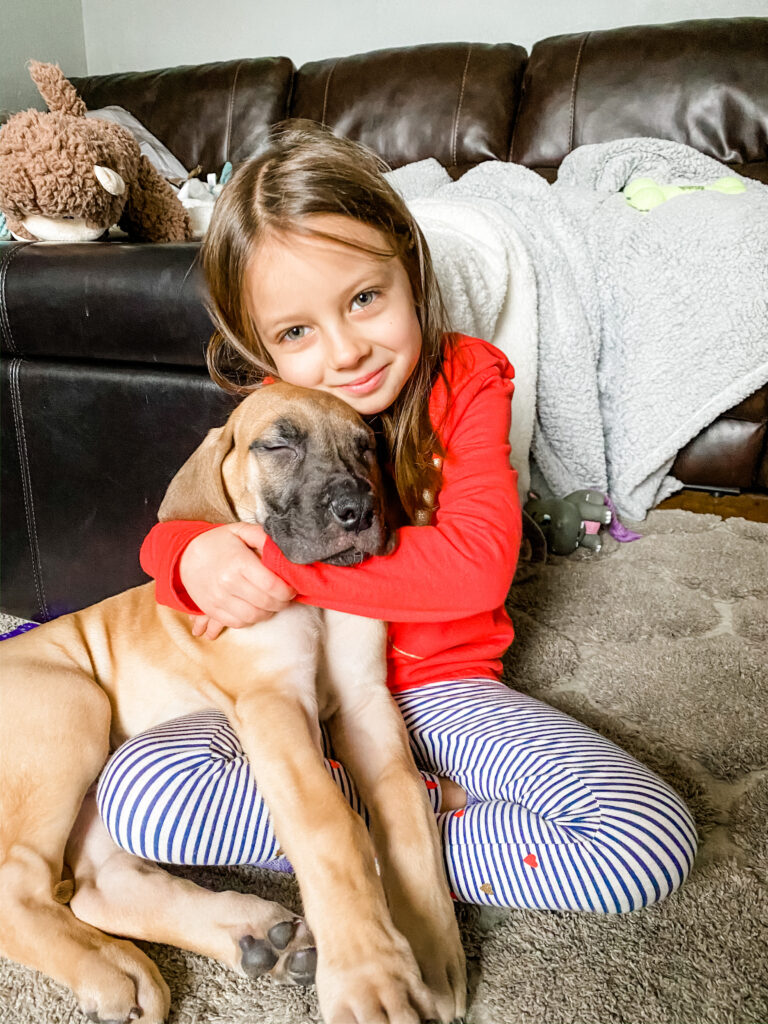
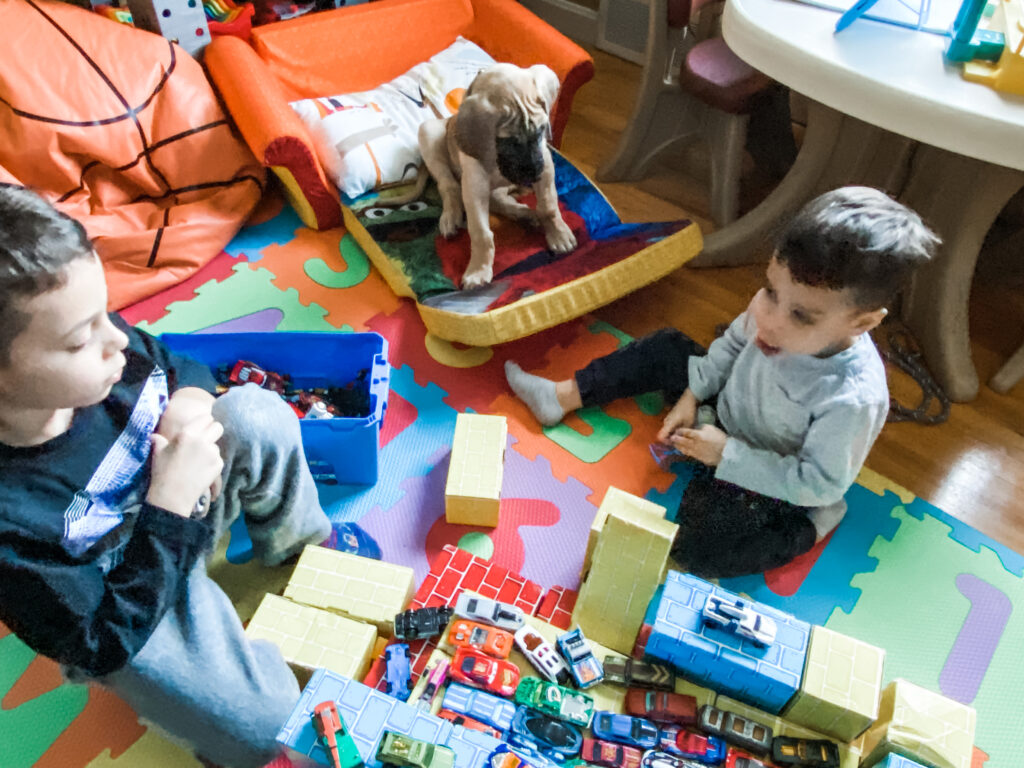
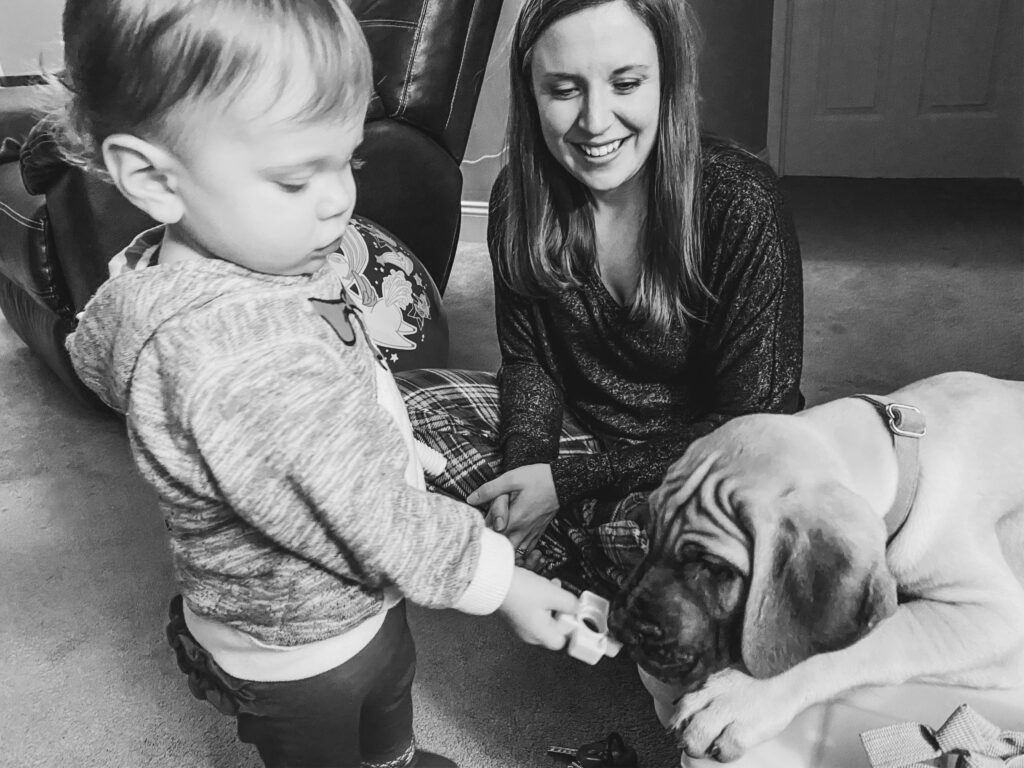
I live in a cottage-style house without stairs, so I made sure he had ample opportunity to climb stairs and even check out elevators. I thought forward to every experience he may encounter, and tried to make sure he was exposed to all the things he might someday see in the world. Of course, I know that’s not possible, but this period of time is so important to building confidence and a well-rounded dog – the effort really makes the difference!
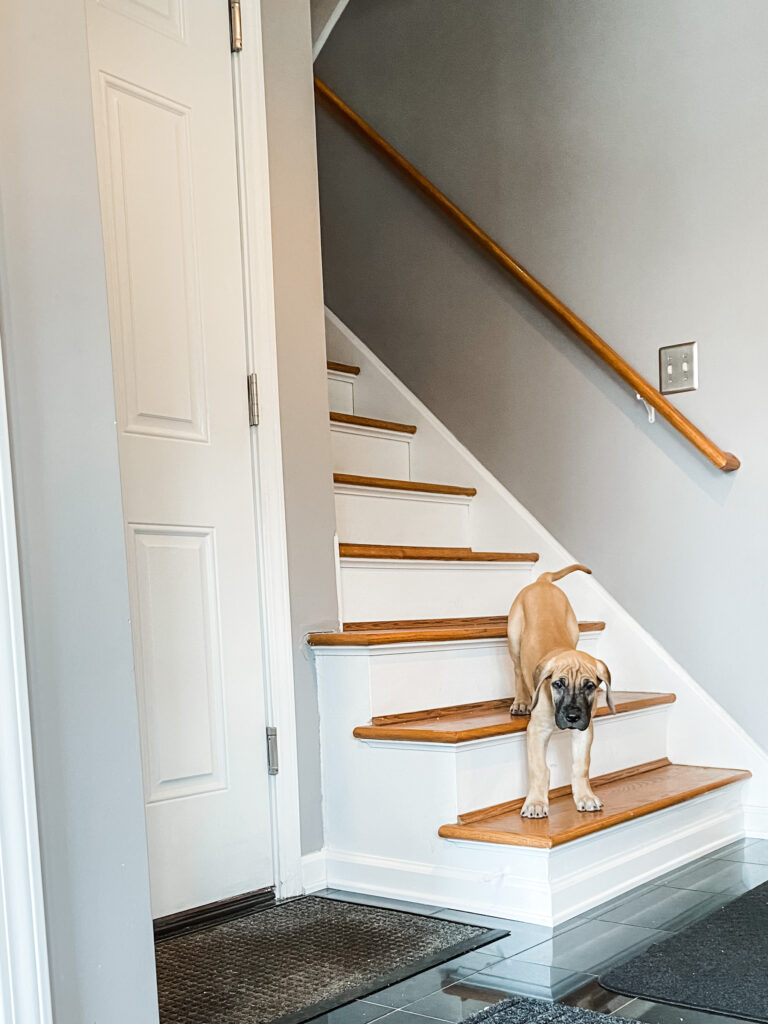
We kind of veered off on a tangent regarding socialization in general, here, but I want to again stress the importance of those early formative weeks; the affects of missing out on these early experiences could be detrimental and you should expose your puppy as much as you can. Don’t forget safety, of course. Be smart about the places you explore with your puppy, and be cautious not to put them in a bad situation until they’ve grown confident enough to handle it (16+ weeks is my suggestion based on my own research!). Implementing these “rules” made an incredible impact on Grey’s confidence and how easily he adjusts to new places and people!


